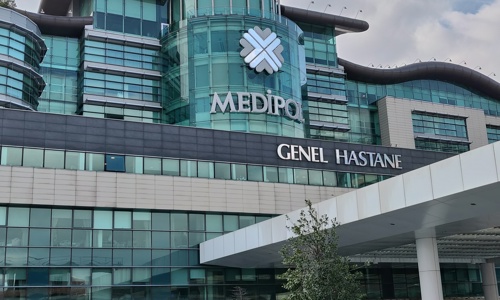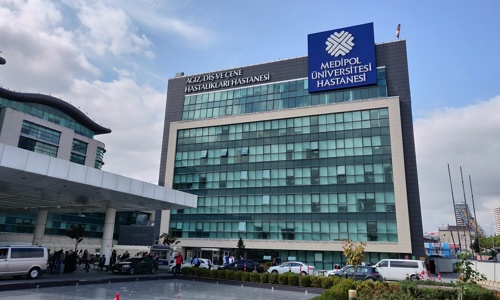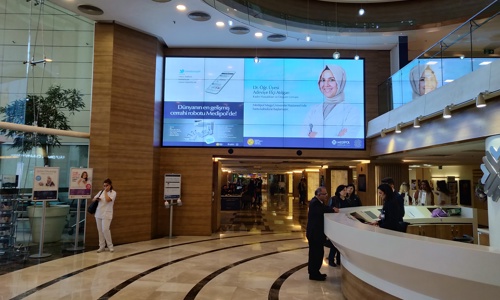Multiple sclerosis treatment at Medipol hospital
Multiple sclerosis is a severe degenerative disease of the nervous system, in which the neural membranes of the cells of the spinal cord and brain are affected, which leads to a complete disability and a decrease in the quality of life.
A particular difficulty for doctors is the absence of pronounced symptoms in the early stages and the young age of the victims - in recent decades, the disease has been detected in 20–40-year-old patients.
That is why the disease requires a thorough diagnosis as early as possible with the help of the latest equipment and competent specialists.
Doctors of the Medipol University Hospital successfully carry out the most modern treatment for patients with such a diagnosis. At the Center for Bone Marrow and Stem Cell Transplantation, treatment by the method of transplanting one's own stem cells is a priority ; the most modern medicines, including experimental developments, are actively used.
The duration of the complete complex diagnostics of diagnostics is 5-6 days .
How is multiple sclerosis diagnosed at Medipol clinic?
For the full diagnostic cycle of the final diagnosis of multiple sclerosis, the specialists of the Motol Hospital carry out apparatus and laboratory tests for about a week.
During the entire examination period, the patient is accompanied by a Russian-speaking medical consultant.
On the first day, the patient is sent to an appointment with the attending neurologist. The specialist conducts an examination and some simple tests, examines the history and gives the medical history and other medical data for translation.
During the second or fourth day , examinations and consultations of other specialists are mandatory: therapist, psychiatrist, rheumatologist, ophthalmologist, hematologist. Highly specialized profile examinations are necessary in order to confirm or exclude other possible causes of the symptoms manifested.
For example, an ophthalmologist will monitor the condition of the eye muscles and establish possible damage and their origin, and a psychiatrist will give an objective assessment of the patient's mental health.
Only after that, the patient is prescribed further studies - hardware and laboratory :
- MRI is a high-precision layer-by-layer 3D imaging of the brain and other organs, which allows you to obtain three-dimensional images. It is also the fastest and most reliable way to identify or exclude the oncological nature of symptoms;
- Full body PET-CT;
- CT with contrast;
- EEG (electroencephalography) is a recording of electrical waves from the brain through electrodes placed on the scalp. It is mainly used for suspected epilepsy and for monitoring diagnosed epilepsy, but it is also recommended in many situations that cause complete or partial loss of brain functionality;
- electromyography (EMG) - a method for assessing the functional state of the central (brain, spinal cord) and peripheral nervous system;
- general and biochemical blood test;
- detailed urine analysis.
On the fifth or sixth day, the patient is once again prescribed a consultation with a neurologist. Afterwards, an interdisciplinary consultation of doctors analyzes the medical history and diagnostic data in order to prescribe an individual treatment regimen.
Treatment depends on the patient's age, history, and degree of degradation.
How is the treatment of multiple sclerosis in the clinic "Medipol"
The step-by-step process looks like this:
- Early diagnosis . Multiple sclerosis, as a degenerative disease of the central nervous system with mild and slow manifestation of symptoms, is very difficult to diagnose. Oftentimes, a patient can even be treated for a variety of other ailments.
In the Medipol clinic, the technical and technological base allows you to carry out all the necessary research, eliminate errors and make the correct diagnosis at an early stage;
- Remission - the key task of doctors is to keep the patient in a state of remission after an exacerbation as long as possible. For this, conservative therapy is carried out: from a variety of medication to physiotherapy methods;
Physiological treatment - therapy is aimed at eliminating negative symptoms that gradually arise with the progression of the disease. The patient is prescribed physiotherapy exercises effective for his condition.
Also, the patient is recommended to maintain a general tone, special dietary food, massage procedures, acupuncture sessions.
Medication - the drugs that are prescribed to the patient are always selected individually and depend on the type of sclerosis. Sometimes it can be drugs that stimulate the immune system. In other cases, the immune system, on the contrary, needs to be suppressed. Antioxidants, hormones, and other medicines have a good effect on the condition of patients.
- Stem cell therapy is used when it is necessary to restore the normal functioning of the patient's immunity. The therapy is quite long: stem cells are isolated from the patient's own blood and placed in a special nutrient medium for accelerated division.
The patient is simultaneously undergoing a course of chemotherapy - the decrease in the immune function decreases. After the end of chemotherapy, the patient is transplanted with his own spinal cord cells, which will stimulate the immune system to produce T-lymphocytes.
Multiple sclerosis currently remains incurable, but this is not a sentence - Turkish doctors are able to significantly slow down the progression of symptoms and improve the patient's quality of life, even at an advanced stage of the disease.
Want to try the treatment? Make an appointment with a neurologist at the Medipol Clinic with the coordinating physician at Clinics Direct .











































